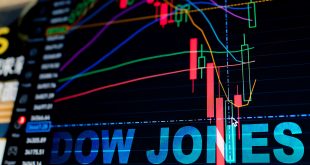Asian stocks experienced slight gains on Friday as investors turned their attention to the upcoming U.S. PCE inflation data, a key indicator that could influence the Federal Reserve’s interest rate decisions. Meanwhile, Chinese markets advanced despite weak economic data, as hopes for further stimulus measures provided a boost.
Regional stocks were mildly affected by a weaker overnight close on Wall Street, where disappointing GDP data raised concerns about sluggish economic growth and the impact of high interest rates. U.S. stock index futures also declined in Asian trading.
China’s Stock Market Rises on Stimulus Hopes
China’s Shanghai Shenzhen CSI 300 and Shanghai Composite indexes both rose approximately 0.3% on Friday, despite disappointing purchasing managers’ index (PMI) data. The manufacturing PMI slipped back into contraction territory in May, while the non-manufacturing PMI grew at a slower-than-expected pace.
These weak readings fueled hopes that Beijing would implement additional policy measures to support the economy. The government has already rolled out a series of supportive measures throughout May, and investors anticipate further action to ensure the country reaches its 5% growth target for the year.
While Chinese stocks were on track for a flat finish in May, Hong Kong’s Hang Seng index surged 1.3% on Friday, driven by investor interest in heavily discounted technology stocks. The Hang Seng was the best performer in Asia for the month of May, with a nearly 4% increase, as investors sought opportunities related to a potential Chinese economic recovery.
Asian Stocks Experience Mixed Performance in May
Most Asian stocks rose on Friday, but the overall performance in May was mixed due to concerns about high interest rates and inflation, which negatively impacted investor sentiment.
Japan’s Nikkei 225 index increased by 0.3%, while the broader TOPIX added 0.7% as consumer price index data from Tokyo revealed a slight rise in inflation. However, both indexes were expected to end May with a flat or slightly lower performance, remaining below the record highs reached earlier in 2024.
South Korea’s KOSPI rose 0.4% on Friday but was set to lose nearly 2% for the month, primarily due to a decline in heavyweight chipmaking stocks amid growing doubts about artificial intelligence.
Australia’s ASX 200 gained 0.5% on Friday and was headed for a flat end to May. Concerns about the Australian economy’s cooling due to persistent inflation and high interest rates contributed to this muted performance.
Futures for India’s Nifty 50 index indicated mild gains after the index experienced a sharp decline from record highs earlier in the week. Jitters surrounding the 2024 general election, with results due on June 4th, have put the Nifty on track for minor losses in May.
 Noor Trends News, Technical Analysis, Educational Tools and Recommendations
Noor Trends News, Technical Analysis, Educational Tools and Recommendations





